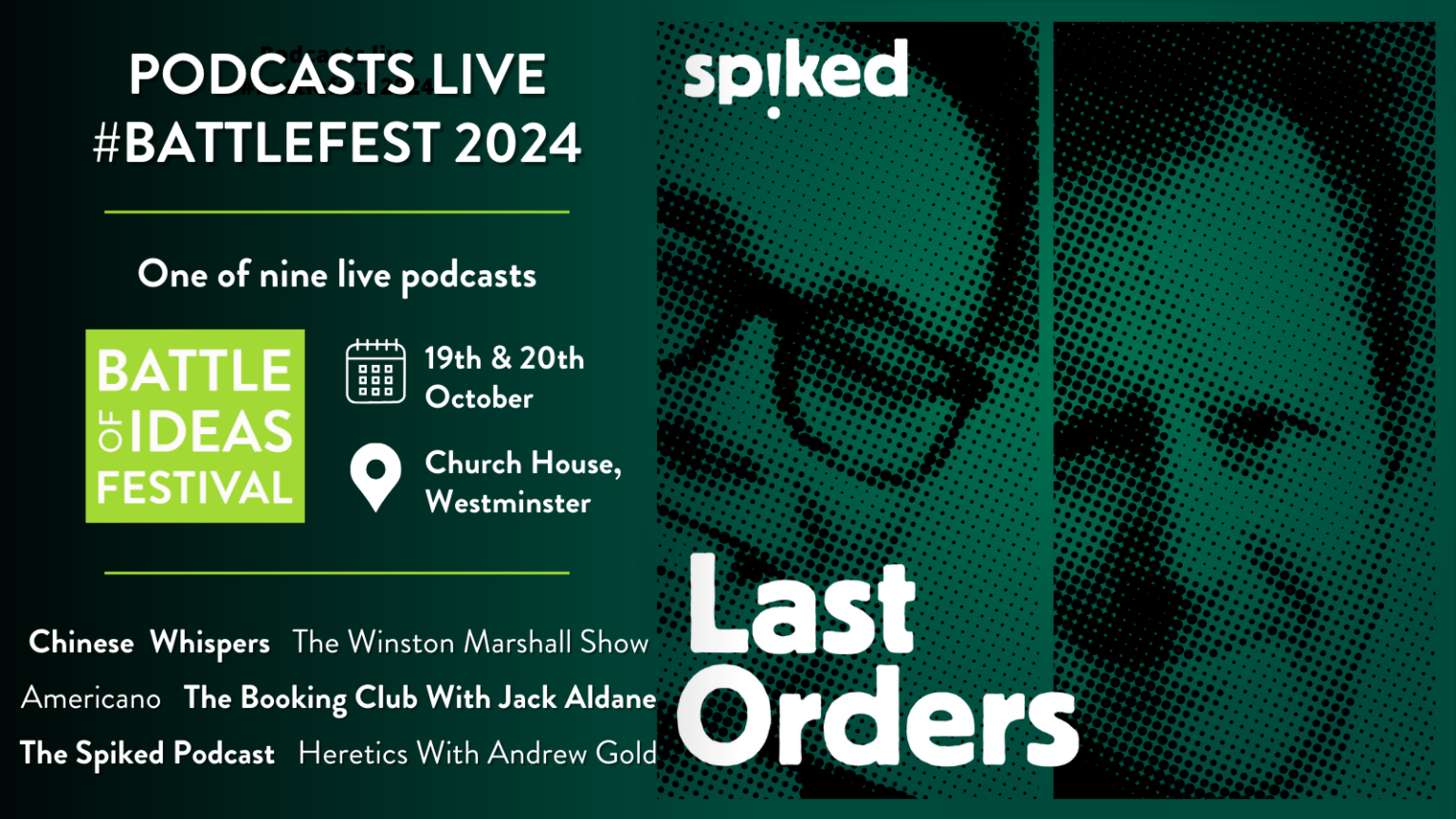The Huw Edwards case exposes the sickening priorities of our justice system
Why are vile child-abuse images treated more leniently than ‘grossly offensive’ speech?

Want to read spiked ad-free? Become a spiked supporter.
If you want to gain an insight into the warped priorities of England’s criminal-justice system, just look at how it treats the possession of child-abuse images compared with expressing offensive views online.
Disgraced BBC presenter Huw Edwards was handed a suspended sentence yesterday, meaning he has been spared jail. He pleaded guilty in July to three sexual offences, related to making (the legal term for possessing or accessing) 41 pornographic images of children. Seven were Category A images – the most serious form of child-abuse images, which depict ‘penetrative sexual activity’. One of the images in this category was a video featuring a nine-year-old boy. These sickening images were sent to Edwards between 16 December 2020 and August 2021, when he was still the BBC’s top news anchor.
Strikingly, Edwards’s sentence is not unusual in child-pornography cases. Seemingly every pompous legal commentator in the land has taken to X or to the airwaves to insist that this is not an example of ‘two-tier justice’ and that the public’s anger at the sentencing is misguided and ill-informed. The mitigating circumstances in Edwards’s case – such as his early guilty plea, lack of previous offending, poor mental health and ‘complex’ character – mean a suspended sentence was entirely ‘normal’, they say. Some of the specific mitigating factors – in particular, that Edwards supposedly felt like an outsider at the BBC for failing to get into Oxford – sound preposterous to a layperson like myself. But the broader question the trial surely raises is should it really be normal to walk free after accessing child sex-abuse images – especially when so many lesser crimes attract custodial sentences?
Indeed, the lenient sentence handed down to Edwards for accessing child-abuse imagery stands in stark contrast with the extremely harsh sentences that have recently been handed out for making offensive statements online.
Take Julie Sweeney from Cheshire, who was last month sentenced to 15 months behind bars for writing an odious Facebook post during the summer riots. In response to a photo of well-wishers repairing a mosque in Southport, after it came under attack by racist rioters, she wrote: ‘It’s absolutely ridiculous. Don’t protect the mosque. Blow the mosque up with the adults in it.’
All people of sound mind would agree this is a disgraceful thing to think, let alone write and post on the internet. But is it worthy of a custodial sentence? After all, there was no evidence that Sweeney’s post incited others to ‘blow the mosque up’. It was posted on a group of 5,000 members and she deleted it quickly afterwards. She pleaded guilty to the charge of sending a threatening communication, though it is not clear there were any real victims (one group member reported feeling offended). The judge acknowledged her actions were ‘reckless’, rather than ‘intentional’. Nevertheless, she will spend more than a year in prison.
Custodial sentences have also been granted for offensive statements and images that were exchanged in private. In July, the High Court upheld the three-month prison sentences handed to two police officers who exchanged racial slurs, celebrated rape and joked about disabled people in a private WhatsApp group. Jake Henderson was jailed for 10 weeks in 2021 for filming a ‘grossly offensive’, racist rant about then home secretary Priti Patel, and then posting it to a private Snapchat group. A friend who passed the video on to another private group was imprisoned for six weeks. In both cases, jail terms were deemed appropriate for entirely private communications. For ‘crimes’ that were, by definition, victimless.
Edwards’s vile crimes, in contrast, were not victimless. The pre-sentence report in his case makes this absolutely clear: ‘Sexual abuse over the internet involves forcing or enticing a child or young person to take part in sexual activities regardless of whether the child is aware of what is happening, a child never does nor can consent. The continued distribution of child-abuse images perpetuates a cycle of abuse to fulfil the demand for the sexualisation of children.’ In other words, child sex-abuse images cannot exist – and cannot therefore be accessed – without the abuse of a child somewhere along the way.
Yet judging by the sentences, it seems the criminal-justice system is more exercised by an intemperate, offensive Facebook post or racist meme shared on WhatsApp than a crime that ‘perpetuates a cycle of [child] abuse to fulfil the demand for the sexualisation of children’. Judges are apparently more offended by ‘grossly offensive’ remarks on social media than they are by the possession of images and videos of prepubescent children being raped. A society that treats the former more harshly than the latter has quite plainly lost its way.
Fraser Myers is deputy editor at spiked and host of the spiked podcast. Follow him on X: @FraserMyers.
Picture by: Getty.
Celebrate 25 years of spiked!
A media ecosystem dominated by a handful of billionaire owners, bad actors spreading disinformation online and the rich and powerful trying to stop us publishing stories. But we have you on our side. help to fund our journalism and those who choose All-access digital enjoy exclusive extras:
- Unlimited articles in our app and ad-free reading on all devices
- Exclusive newsletter and far fewer asks for support
- Full access to the Guardian Feast app
If you can, please support us on a monthly basis and make a big impact in support of open, independent journalism. Thank you.









Comments
Want to join the conversation?
Only spiked supporters and patrons, who donate regularly to us, can comment on our articles.